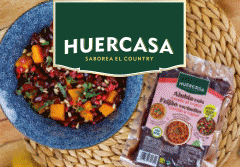Fruit farming has become a risk activity. Farmers have to be ahead of the pack regarding what the market demands.
“This business is changing more every day. If you aren’t at the starting line, the market leaves you behind,” states Antonio Caballero, manager of Frutas Torero. “In three years we have converted 60 hectares, of which the last 10 correspond to trees that were only 5 years old. If you want to continue in the business, you must be ready to make changes.”
The company from Abarán, just like many others, made an important conversion from peaches to nectarines a decade ago. “The paradox is that now peaches are being planted again. At the same time, in May the market is saturated with nectarines. Regarding apricots, we haven’t had any new plantations for years now because I think the market has peaked, although we hope that, due to the lack of Italian and French offer, the demand might be higher. Everything is completely changeable.”
The company which, as well as operating with stone fruit is one of the traditional grape growing companies, is also carrying out renewals in the Crimson variety, which are being replaced by ITUM varieties since they are more commercially successful, as well as smaller volumes of varieties with royalties.
The executive confirms that this year they have decided to carry out a very intense thinning operation with the trees in order to obtain larger fruit. “Last year we were already using this technique, but it has been more significant during this campaign. The half kilo and kilo baskets are a very popular format on the German market and we have opted for less produce, but that is larger in size.”
A few days after the start of the campaign, Caballero indicates that, in spite of the general concern existing, “the early fruit operators are starting the campaign much more calmly that we expected.”
As a matter of fact, this year’s quality seems better than last year’s due to the hours of cold that the trees have experienced. On the other hand, the different frosts have eliminated a great deal of the extra early and early production. “The nearest horizon indicates that the campaign will start slightly after the normal dates and with less fruit, which will also coincide with the large retailers’ stone fruit programmes.”
It is very risky to advance the final result of the campaign, but “the frosts that have occurred both in Italy and in France, in Valencia, in Lerida and in our own Region, are partially clearing the market.” In any event, the executive guarantees, “once the circumstances are more favourable at source, we always keep an eye on what could be happening at the destinations. We need good weather to motivate consumption.”
Regarding the oversupply that the market is suffering from, Caballero personally believes that “there is no other overall solution than a public regulation that bans more planting of some varieties for a certain period of time. We are all in the same boat and with an oversupply we are not going to get anywhere.”





















